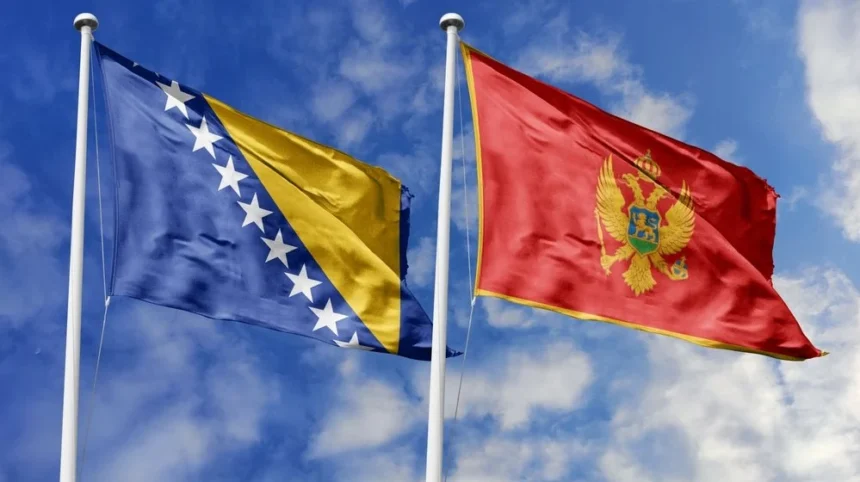Bosnia and Herzegovina (BiH) and Montenegro are facing the same expansionist claims from Serbia, according to speakers at the conference titled “Relations Between Bosnia and Herzegovina and Montenegro – Open Issues and Perspectives,” which began today in Sarajevo.
Miodrag Vlahović, the President of the Helsinki Committee in Montenegro, stated that both countries are grappling with the issue of “survival as democratic civil structures” and their aspirations for Euro-Atlantic integration. He emphasized that BiH is “the key to the Western Balkans, as the situation in the country impacts all neighboring nations.”
“Applying the false narrative that peoples cannot and should not live together in one society has negative repercussions on neighboring countries,” Vlahović said. “If peoples cannot live together in BiH, why would they be able to live together in Montenegro?”
Miro Lazović, the President of the BiH 1990 Parliamentary Forum, remarked that the shared challenges faced by BiH and Montenegro are “transported from Serbia.” He stated that this year was marked by the “attempt of the Serbian World” and the “politics from Belgrade” to create issues in BiH through the Svesrpski Sabor declaration, aimed at causing tensions in the country.
Aleksandar Radoman, the Dean of the Faculty of Montenegrin Language and Literature, noted that relations between BiH and Montenegro have historically been strong, but the common problem they both face is the “destructive, expansionist, and hegemonic policy coming from Belgrade.”
Kasim Trnka, Vice President of the Bosniak Intellectuals Congress, stressed that the “Serbian World” declaration poses a threat to both BiH and Montenegro. He warned that this “project,” which has already been effectively implemented in Republika Srpska and Serbia, is primarily aimed at destabilizing BiH and, to a lesser extent, Montenegro.
The conference was organized by several institutions, including the Bosniak Intellectuals Congress of BiH, the Croatian National Assembly of BiH, the Serbian Civic Council of BiH, the Forum of BiH Parliamentarians 1990, the Jewish Cultural, Educational, and Humanitarian Society La Benevolencija, the Center for the Promotion of Civil Society, and the Justice for BiH Foundation.







